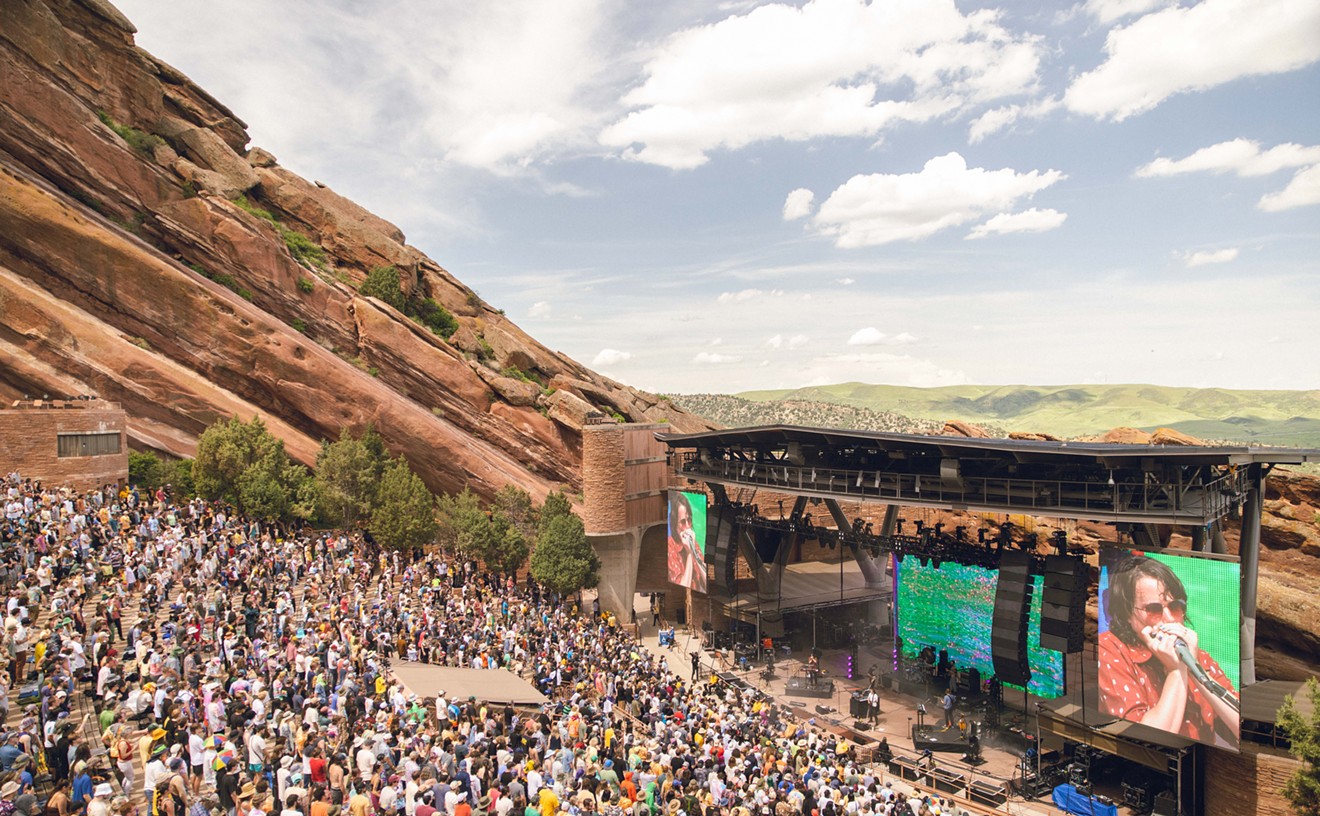For a moment, Theo Bleckmann didn't know if he was alive or dead.
Five years ago, the New York-based vocalist and composer, who has been a fixture in the avant-garde and jazz scenes for 25 years, was in a car accident that severely damaged his eyes.
“I don’t know how long that moment was, but it was a very clear moment,” Bleckmann says. “It’s with you. It’s there forever. Like that moment of, ‘Oh, maybe I’m dead now. This is what dead is like.’ That’s pretty powerful. Your mind is in a different place, and it was really peaceful. It wasn’t a freakout or crazy. It was just, ‘Oh, I’m dead now.’"
As Bleckmann tells it, “It’s a profound experience, but it makes you realize that that’s the common thread that all of us have as human beings, that we’re going to die and we don’t know when. Those are the two things. And it’s so profound, and it’s also natural by the same token. It’s just the most natural thing."
While he says his compositions on his ECM Records debut, Elegy, relate to death or transcendence, he didn’t want to write dark and brooding songs. His approach: “What if it’s incredible? What if it’s transcendent? What if it’s natural and beautiful, like nature can be?”
Two months before recording the textured and ambient Elegy with longtime collaborators guitarist Ben Monder and drummer John Hollenbeck, as well as pianist Shai Maestro and bassist Chris Tordini, Bleckmann’s 91-year-old mother died.
“The thing about dying that I realized is it’s not just horrible, horrible, horrible, but there’s just incredibly beautiful and natural, just plain moments," Bleckmann says. "A certain calm about it and sense of order that I experienced. It was really powerful, and I wanted to put that sort of feeling into the music.”
Some of Bleckmann’s compositions on Elegy are very concrete. In “Take My Life,” he imagines what it would be like to die. The song begins with the lines “Take my voice/Take my heart/Then silence what I’m hearing/Dim the light inside my eyes.” Other songs, like “The Mission” and “Wither,” are really more about a mood, Bleckmann says, and feature his distinctive wordless melodic singing.
While some people have told Bleckmann he sings like an instrument, he cringes at the idea. “I don’t sing like an instrument,” he says. “I sing like my voice. I sing with my voice. I’m not imagining being a trombone or being a trumpet. It’s always my voice. Sometimes my voice has no words. I’m speechless. I’m singing wordless music.”
Bleckmann’s approach to sound exploration stems from his collaborations in the avant-garde and free-jazz realm with prominent artists like John Zorn, Laurie Anderson and Meredith Monk, whom he started working with 25 years ago. In addition to recording albums of Kate Bush's and Charles Ives's music, Bleckmann says he has also worked with composers who ask him to sing vocal lines without lyrics, either with instruments or without.
“There’s all of that very disciplined kind of non-lyric kind of singing that I’ve done that’s away from just free improvising and making sounds,” Bleckmann says. “All of that goes into what I’m doing now, where I feel free. In my own work, I can just make a sound whenever I want to or I can sing a melody and do it with overtones or without. There’s all this stuff that I can throw in and be free with in my own work that’s really fun.”
Elegy showcases both Bleckmann’s extraordinary vocal and compositional skills, and there’s some wonderfully nuanced playing from Monder and Maestro, but Bleckmann says the album might appeal more to people who listen to creative music no matter what, no matter the genre.
“They’re not necessarily people that are such big jazz heads, because they’ll be disappointed,” he says. “It’s not going to be jazzy jazz with a capital J, but is sort of a fine line between ambient and jazz, and there’s beauty, but there’s also strangeness. It’s sort of the people that are looking for the underdog, which is me. Sort of looking for the stuff that fell through the cracks that has sort of a strange, mysterious beauty to it, I would say.
“Those are the people that might like this more than people that want to hear straight-ahead jazz," he adds. "And I’m not saying that people that listen to straight-ahead jazz might not like this, but if they’re coming to this with the Great American Songbook in mind, then I think they’re going to be disappointed.”
Theo Bleckmann will play at 7 and 9 p.m. Saturday, February 11, and 5:30 and 7:30 p.m., Sunday, February 12, at Dazzle. Tickets are $20.
[
{
"name": "Air - MediumRectangle - Inline Content - Mobile Display Size",
"component": "12017618",
"insertPoint": "2",
"requiredCountToDisplay": "2"
},{
"name": "Editor Picks",
"component": "17242653",
"insertPoint": "4",
"requiredCountToDisplay": "1"
},{
"name": "Inline Links",
"component": "18838239",
"insertPoint": "8th",
"startingPoint": 8,
"requiredCountToDisplay": "7",
"maxInsertions": 25
},{
"name": "Air - MediumRectangle - Combo - Inline Content",
"component": "17261320",
"insertPoint": "8th",
"startingPoint": 8,
"requiredCountToDisplay": "7",
"maxInsertions": 25
},{
"name": "Inline Links",
"component": "18838239",
"insertPoint": "8th",
"startingPoint": 12,
"requiredCountToDisplay": "11",
"maxInsertions": 25
},{
"name": "Air - Leaderboard Tower - Combo - Inline Content",
"component": "17261321",
"insertPoint": "8th",
"startingPoint": 12,
"requiredCountToDisplay": "11",
"maxInsertions": 25
}
]












